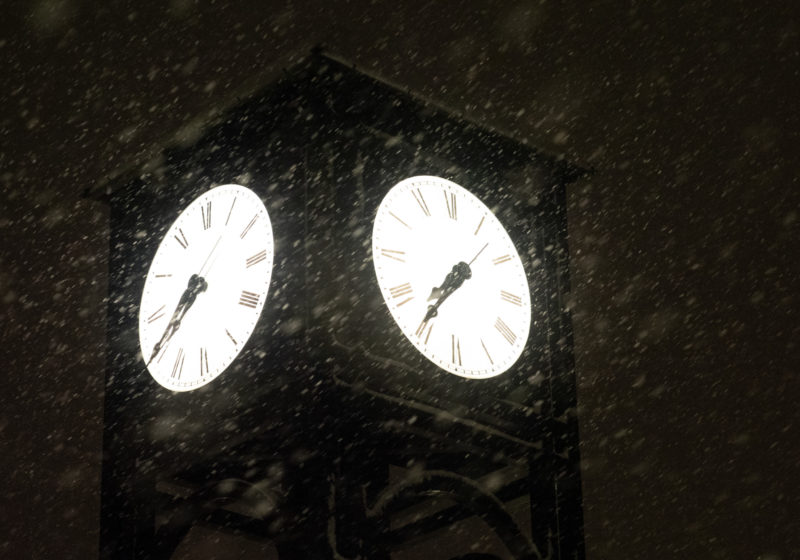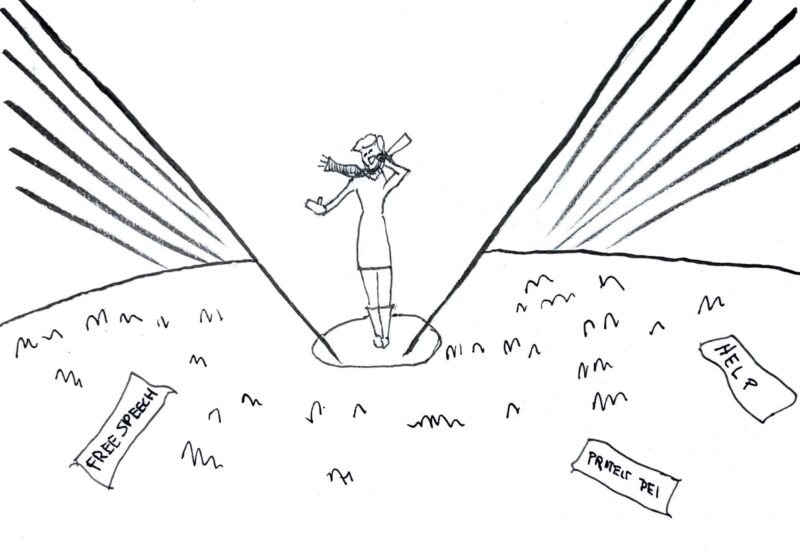Students have voiced opinions on the University administration’s Jan. 5 decision to reverse its Jan. 4 guidance, which prevented students from returning to campus without special approval after moving classes online one week before the semester’s start in January.
The reversal came 27 hours after President Sarah Mangelsdorf and Interim Provost Sarah Peyre sent an email saying that students should return to campus and that classes would be in person. A spike in county infection rates, insufficient isolation space, and concerns about community spread given the Omicron variant’s increased transmission rates all contributed to the rapid policy reversal, according to a Jan. 6 email.
Many students voiced their thoughts about the decision on social media and in interviews with the Campus Times.
“I do genuinely believe that President Mangelsdorf made the decision keeping what is best for the community in mind, however, [she] did not take the right steps to include all relevant stakeholders and/or minimize the spread of panic through a more effective messaging/communication method,” SA President Sabeet Kazmi said in an interview.
SA Senator Boris Sorokin also chimed in, posting a video on his Instagram story criticizing the administration for making the decision so close to the start of classes.
Students in vulnerable situations like sophomore Clarice McKee reached out to CT to communicate their worries.
“I wish they would have just said ‘we don’t know.’ Instead, they told us ‘for sure, come back’ and then ‘for sure, don’t come back,’” McKee said. “I don’t have internet at my home because I live in a very rural area. I can’t complete classes from my home, so I have no choice but to come to campus.” McKee has since returned to campus with approval.
After working to compile official information for students, Kazmi and SA Vice President Rusama Haque sent an email on Jan. 7 urging students to utilize the Basic Needs Hub for financial support and listing which students could be approved to return to campus (students already en route, international students, students without stable home internet, and students living in unhealthy family environments).
On the issue of supporting vulnerable students during this period of off-campus remote learning, Kazmi also made a separate statement in an interview.
“I don’t know anyone who fully supports the decision, but I personally do agree that going online for an initial bit might just be a smart move. However, making students stay back at home and not providing them basic resources [such as food, facilities support, basic needs, etc.] is quite irresponsible,” Kazmi said. “It creates an incredibly inequitable educational playing field, and that in and of itself contradicts the Meliora values that this school claims to want to uphold.”
Social media buzzed with student responses and memes in the wake of the decision.
Junior Minh Loi made an SA petition on Jan. 6 calling for S/F options, full housing and dining refunds for students who remain off-campus after January, partial refunds for students who arrive after January, flight reimbursements for students unable to cancel travel arrangements, and a partial tuition refund for the semester. The petition circulated widely on Instagram and has received 530 signatures since its posting.
In the wake of the Jan. 5 email, Instagram accounts like @urochestermemes and @ur_memes23 posted a number of student-made memes touching on the decision and controversies from earlier in the school year, like Mangelsdorf’s decision to not return the flag display to Hirst Lounge, problems with River Campus Wi-Fi, and dining hall closures.
Posts made to the official @urochester Instagram account on Jan. 5 and 6 highlighting the new guidelines received over 500 total comments, of which only six were supportive. Many of them repurposed commenting trends made popular on TikTok, and a TikTok video made by sophomore Jacqueline Malizia highlighting some of the comedic critical comments from the posts has received over 600,000 likes.
“I’m not mad at you UR, I’m just disappointed,” sophomore Patrick Jacob said in one of the comments.







